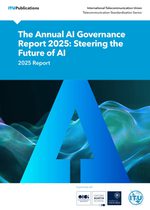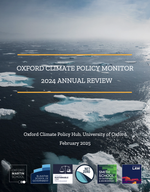Mounting geopolitical and geo-economic tensions will hinder the world's ability to deal with a growing range of collective challenges, according to the World Economic Forum's 2019 Global Risks report.
The Oxford Martin School is one of the academic advisers to the report, which argues that efforts will be further diverted from addressing issues such as environmental degradation and the increasing disruptions of the Fourth Industrial Revolution should economic and political confrontations between major powers worsen this year.
The report presents the results of our latest Global Risks Perception Survey, in which nearly 1,000 decision-makers from the public sector, private sector, academia and civil society assess the risks facing the world.
The Global Risks Report 2019 is published against a backdrop of worrying . If unresolved, these tensions will hinder the world’s ability to deal with a growing range of collective challenges, Over a ten-year horizon, extreme weather and climate-change policy failures are seen as the gravest threats.
This year’s report includes another series of “what-if” Future Shocks that examine quantum computing, weather manipulation, monetary populism, emotionally responsive artificial intelligence and other potential risks. The theme of emotions is also addressed in a chapter on the human causes and effects of global risks; the chapter calls for greater action around rising levels of psychological strain across the world.





